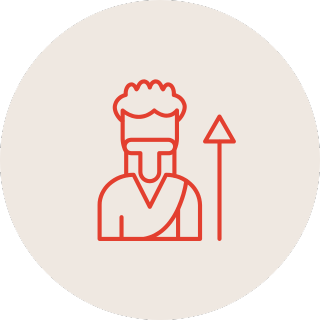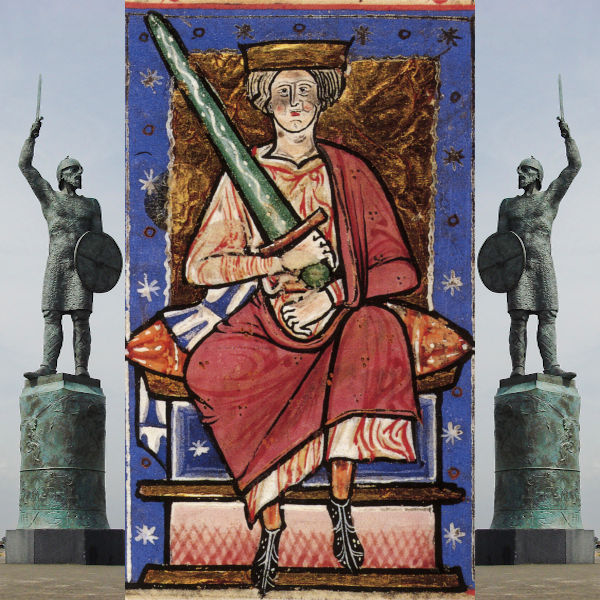Compare your DNA to 168 Ancient Civilizations
FIND THE HISTORY OF YOU
So, you've got your DNA results? To discover who you really are, you need to know where you come from. We can take your DNA results one step further through the use of advanced archaeogenetics
How It Works
Uncovering your ancient ancestry is simple with our three-step process.

Take a DNA Test
Get tested with one of the major DNA testing companies (e.g. AncestryDNA, MyHeritage, FamilyTreeDNA, DanteLabs etc.).

Download Your Raw Data
Download your raw DNA data file from your testing provider's website. We support all major formats.

Upload & Explore
Upload your DNA file to our secure platform and receive your detailed ancestry analysis within minutes.
DIG DEEP
Into Your Ancient History
Your DNA, fully visualized
Explore your roots with exclusive dynamic graphs, interactive maps, and ancestral timelines designed to bring your ancient past to life.

Why Choose MyTrueAncestry
Discover what sets our ancient DNA analysis apart from traditional ancestry services.

100% Anonymous Insights
All retained data is fully anonymized, ensuring your privacy is completely protected.

Powered by Real Ancient DNA
The only service powered by real ancient DNA samples from all over the world and advanced archaeogenetics technologies.

Try For Free
Our basic analysis is 100% free for you to try with no payment method required.
BROWSE OUR DNA SPOTLIGHTS
Ötzi the Iceman

In 1991, hikers discovered the mummified remains of a man who died 5300
years ago in the Alps with an arrow stuck through his shoulder. His genetics
show great affinity to modern Sardinia and it is thought if you have ancestors
stem from the region between Sardinia and the Alps, there is a chance you could
be related to Ötzi. Found in the Ötztal Alps between Italy and
Austria, he was given the nickname Ötzi and represents Europe's oldest known
natural mummy.
He is believed to have been murdered as the arrowhead in his left shoulder
was a fatal wound. He had brown eyes, O-type blood, was lactose intolerant and
probably had Lyme disease. Analysis of his colon showed Ötzi's
second-to-last meal included ibex meat, cereals and plants. His last meal
included red deer meat, grasses and cereals. He had a gap in his smile, lacked
wisdom teeth and also had a fairly rare condition where he lacked the smallest
ribs on either side.
Read more here
Thuringian Princess of Hassleben

An ancient cemetery was discovered in Hassleben Thuringia which remained
the richest ancient grave found in Germany for almost a hundred years. Not only
was the oldest written Germanic word ever discovered etched onto a comb, but
hundreds of Roman coins, ceramic fragments and Roman-style brooches were also
discovered. This is no accident as much of our knowledge regarding Thuringia and
broader Germania comes from the Roman historian Tacitus. The Elbe Germanic
tribes who moved into this region were allies of the Romans who were trading
partners, a buffer to the neighbouring Chatti - sworn enemies of Rome, as well
as specialised in metalworking of iron and precious metals.
Here you can see the richly outfitted grave of the Princess of Hassleben
which demonstrates the influential noble class who had a very close relationship
with the Romans. She was a young woman buried with a choker, golden fibulae, a
ring, a collier of roman glass beads, roman coins, pottery plates and vessels.
In her mouth was a Roman gold coin - known as Charons obol - which would provide
payment to Charon the ferryman to allow her soul to reach the world of the dead.
Next to her remains lay the skeleton of a small dog - possibly her personal pet.
Read more here
St. Brice's Day Massacre

Aethelred II, known later as the Unready, was King of the English from
978 to 1013 and again from 1014 until his death. He came to the throne at the
age of 12 after his half brother was murdered. At the start of his reign, Danish
raids on English territory began in earnest. Aethelred defended his country by a
diplomatic alliance with the duke of Normandy. The Battle of Maldon on 11.
August 991 AD involved 2,000-4,000 fighting Viking men led by Olaf Tryggvason
against the Anglo-Saxon leader Byrhtnoth who was the Ealdorman of Essex. This
ended in defeat for the Anglo-Saxons and King Aethelred was forced to pay
tribute, also known as Danegeld, to the Danish king. This payment of 10,000
Roman pounds of silver was the first example of Danegeld in England - a pattern
which would follow. The Danish army continued ravaging the English coast until a
Danegeld of 22,000 pounds of gold and silver was paid - at which point Olaf
Tryggvason promised to never return. Viking attacks only grew worse - Danish
raids would follow leading to an even larger Danegeld payment of 24,000 pounds
for peace in the Spring of 1002 AD.
The same year, Aethelred married Lady Emma, the sister of Duke Richard II
of Normandy in hopes of a stronger diplomatic alliance. On St. Brice's Day, 13.
November 1002, the confident yet paranoid King ordered the killing of all Danes
living on border towns such as Oxford. Aethelred described this massacre in his
own words: ... a decree was sent out by me with the counsel of my leading men
and magnates, to the effect that all the Danes who had sprung up in this island,
sprouting like cockle amongst the wheat, were to be destroyed by a more just
extermination, and thus this decree was to be put into effect even as far as
death, those Danes who dwelt in the afore-mentioned town, striving to escape
death, entered this sanctuary of Christ, having broken by force the doors and
bolts, and resolved to make refuge and defence for themselves therein against
the people of the town and the subrubs; but when all the people in pursuit
strove, forced by necessitym to drive them out, and could not, they set fire to
the planks and burnt, as it seems, this church with its ornaments and its
books.
Read more here

Join Our Community
Our Community blog is your hub for the latest discoveries in ancient DNA, archaeology, and lost civilizations.
Stay curious, stay connected.
Stay curious, stay connected.

Contact Us:
EMAIL
INFO@MYTRUEANCESTRY.COM
MAILING ADDRESS
MyTrueAncestry AG
Seestrasse 112
8806 Bäch
Switzerland



